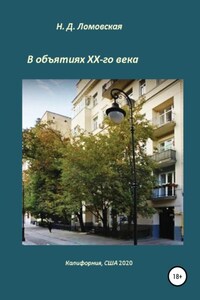ENGLAND, AT LAST, in view: a small harbour settlement crouched on the shoreline. And rain, still this rain, just as he’d been warned. Mid-August, but rain for the three days – and nights, long nights – they’d been anchored offshore. It wasn’t as if Spain didn’t have rain. Plenty of it, sometimes, and sometimes even in August; sometimes lasting all day, perhaps even several days, but then done and gone and the sun hammered back into the sky. In Spain, you marvelled at the rain, you sheltered, you endured it. Exuberant, it was: a visitation. Not like this.
This English rain wasn’t so much falling as getting thrown around on the wind. It had a hold on the air; it settled over him and seeped into his clothes, skin, bones. He should go back below. Yet he stayed on deck as the ship moved forward. A huddle of harbour buildings and, beyond, to the horizon, greenery. Pelt came to mind: pelts; the land looked green-furred. Spain had green: from the subtle, silvered blue-green of olive and almond trees to the deep, dark gloss of citrus trees, and, in the middle, vines, the gentle shade of vines. Plenty of green in Spain, cultivated, trellised and terraced. This, though, here, this English green, looked relentless, creeping into the very lie of the land rather than gracing it.
Six weeks, he’d been told. That’s all. Six weeks, at most, in England. The first ship home will sail within six weeks. Do the job we’re sending you to do, and then you can come home.
England: a small, narrow island up off the edge of everywhere else. A far corner of the world, where the sea turned in on itself, wave-wild, and the sun was cold-shouldered.
What were they doing, now, back home? Rafael closed his eyes to see the luminous shade of the courtyard, risked a hand off the rail to touch the little sundial in his pocket: just touch it, because of course it was no use, calibrated for a different latitude, and anyway there was no sun. He didn’t know what time it was here nor there. But whatever the time back home, if not now then soon someone would be in the courtyard drawing water from the well: that particular, steady creaking of the handle. And even if the courtyard were otherwise deserted, there’d be the conversation of women behind the shutters: his mother, his aunt, his sister-in-law, and Leonor.
And Francisco, his little Francisco, who loved to crouch beside the well to pat the spillage. And if ever the filled bucket was unattended even for the briefest turn of a head, he’d skim it with his upturned palm, spoon it, let it well over his wrist and stream down his arm to splatter on the tiles. And then Leonor would call to Rafael to stop him, and Rafael would pick him up, having to brace himself, these days, against the strength of his son’s reckless, over-eager lunge in the opposite direction.

Someone had made a mistake. That was what Rafael had heard. Someone senior on the Spanish side was supposed to have told the prince that his bride, the English queen, had provided for him; not financially (not a penny) but in terms of staff. A full household – hundreds of Englishmen – had been installed for him at court. The prince – ever-diplomatic – hadn’t presumed that any provision would be made, so, despite meticulous planning for a smooth and inconspicuous arrival in England, he’d come with his own three hundred men, a month ago, to a palace which had very little room for them.
Various Londoners had been persuaded to take some in, it seemed. And now, Rafael and Antonio: belated arrivals, stragglers. Rafael didn’t mind the change of plan. This initial inconvenience, yes, of course, he did mind: waiting to be allocated a host when they’d already suffered five days at sea and then the protracted journey overland in pouring rain. But on the whole, no. It wasn’t going to cost – they’d still be fully provided for – and he’d rather lodge with a local family, he reasoned, than suffer the squeeze at court.
Antonio, predictably, did mind. No doubt he’d bragged back home that he’d be living in royal splendour. While Rafael waited at the office that had been designated to deal with Spanish matters, Antonio prowled around the courtyard outside, heedless of the rain, in search of commiseration with like-minded company. Which meant company other than Rafael’s. How did he do it? – make Rafael feel as if he were his father. He did it all the time; he’d been doing it for the five years that they’d been working together: making Rafael feel middle-aged. In fact, Antonio himself was in his late twenties, by now; there were only twelve years between them.











